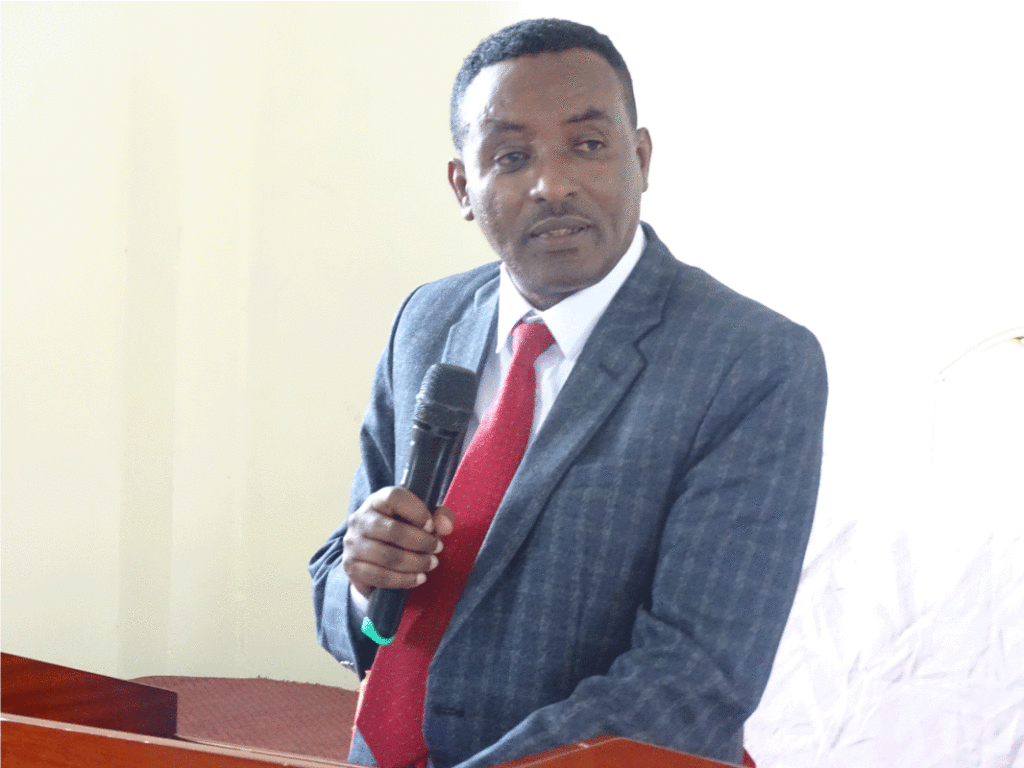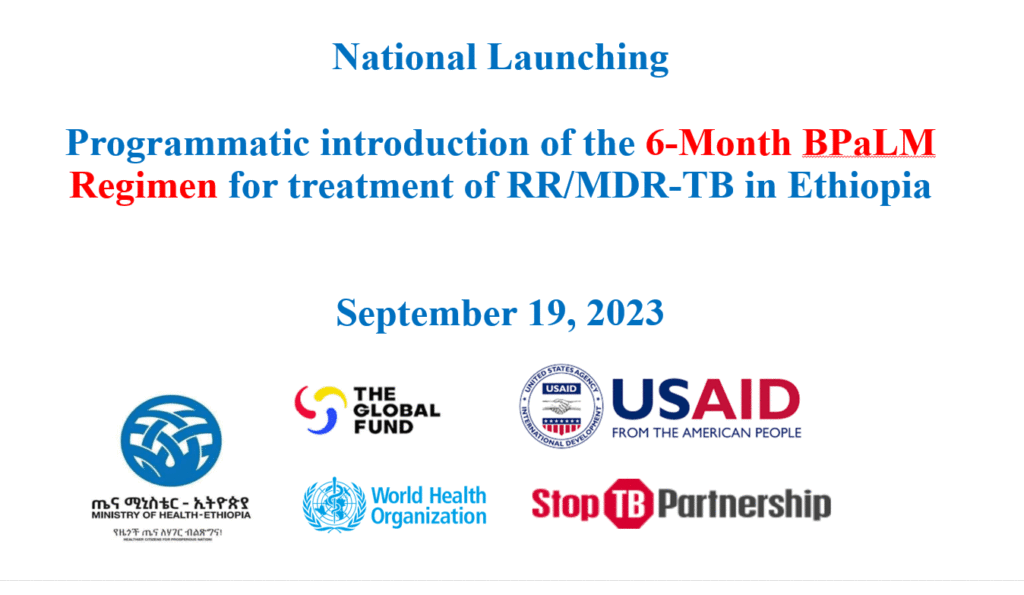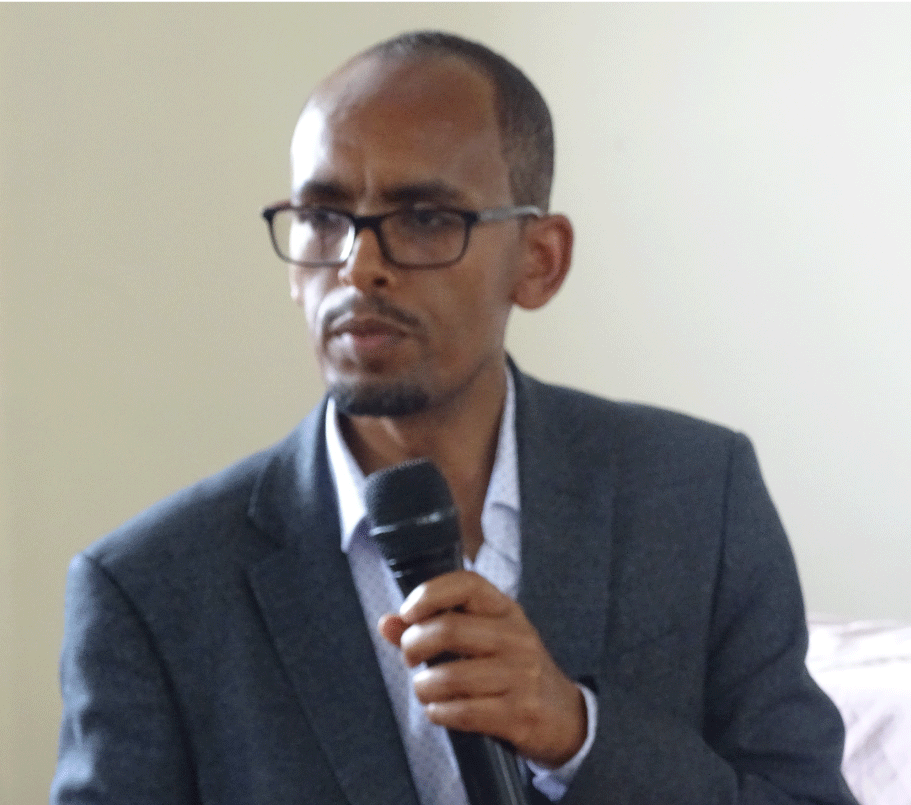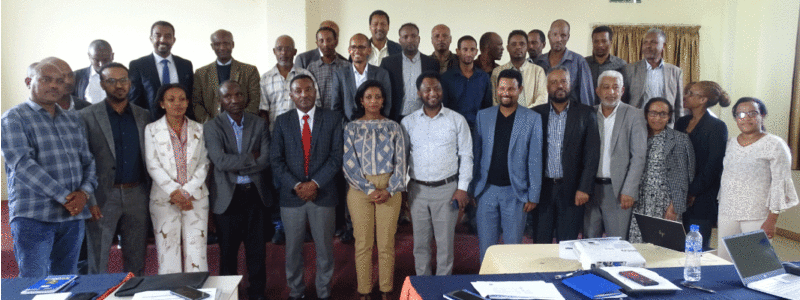Ethiopia has officially launched the programmatic rollout of the 6-month Bedaquiline, Pretomanid, Linezolid, and Moxifloxacin (BPaLM) regimen for the treatment of rifampicin-resistant/multi-drug resistant tuberculosis. The national launching event took place in Bishoftu with the presence of officials from the Ministry of Health, Regional State Health Bureau TB program managers, key partners, and major donors of the Ethiopian TB program.

The national launching was officially announced by Mr. Edossa Adugna, advisor to the State Minister of Health. Mr. Edossa emphasized that this announcement reflects the government’s strong commitment to ending TB and eliminating drug-resistant tuberculosis. The advisor stated that starting from September 19, 2023, the BPaLM/BPaL regimen will be available in all 67 drug-resistant tuberculosis treatment initiating centers across Ethiopia. He also assured that the Ministry of Health will continue to implement innovative strategies and evidence-based approaches to achieve national targets for ending TB.
Dr. Hiwot Solomon, Diseases Prevention and Control Lead Executive Officer (DPC LEO), described the programmatic rollout of the BPaLM regimen as a significant milestone in the DR-TB program of Ethiopia. The lead executive officer emphasized that Ethiopia is keeping up with rapid advancements in tuberculosis and drug-resistant tuberculosis by adapting national policies, strategies, and guidelines to ensure early access to new tools, diagnostics, and treatment options for people with tuberculosis. She also acknowledged all TB partners who have contributed to achieving such milestones.
The 6-month BPaLM regimen consists of four drugs – Bedaquiline, Pretomanid, Linezolid, and Moxifloxacin – offers a shorter treatment duration compared to previous regimens, which typically lasted for 9 to 24 months. The introduction of the BPaLM regimen in Ethiopia is expected to improve treatment outcomes for MDR-TB patients and further reduce the burden of the disease in the country.
A Bold Decision
In a video message recorded for the event, Dr. Tereza Kasaeva, the Global TB Program Director at WHO, congratulated the Ethiopian government and Ministry of Health for their efforts in increasing access to innovative and more effective treatment for drug-resistant tuberculosis. She emphasized that TB remains one of the deadliest infectious diseases worldwide, with drug-resistant strains posing a significant public health problem. In 2021 alone, nearly half a million people were affected by multi-drug or rifampicin-resistant TB, resulting in an estimated 200,000 deaths.
Dr. Tereza also reminded the UNHLM-TB’s bold five-year targets set between 2018 and 2022 to reduce death and suffering from TB. However, she noted that the target for MDR-TB treatment coverage has not been met, with only 43% of the estimated 1.5 million people with MDR-TB accessing treatment during this period. To address these challenges, she called for increased commitment from countries to expand diagnostic and treatment capacity.
The Global TB Program director emphasized the importance of the new six-month BPaLM/BPaL regimen as the preferred choice for eligible patients. This regimen offers a shorter duration, lower cost, reduced pill burden, and high efficacy, which can help health systems recover from setbacks caused by the COVID-19 pandemic while saving lives and resources.
Dr. Tereza commended Ethiopia’s government, Ministry of Health, technical partners, and civil society for their bold decision to roll out the newly recommended regimen for treating drug-resistant tuberculosis to all eligible patients in Ethiopia.

Dr. Lucica Dititu, Executive Director of the Stop TB partnership, also joined the launching event through a video message and congratulated Ethiopia’s National Tuberculosis and Lung Disease Program and all teams involved in achieving this major milestone. Dr. Lucica recalled her experience in the old days using injectable regimens that used to be given for at least 2 years to treat drug-resistant TB patients. It was long, painful, produced horrible side effects, and was completely unacceptable, she said. The executive director emphasized the importance of ensuring accessibility to this treatment for those with drug-resistant TB.
Dr. Yewulsew Kassie, Senior Infectious Disease Advisor of USAID/Ethiopia, called upon regional health stakeholders to play their critical role in delivering this new treatment to patients. He reassured USAID’s support for Ethiopia’s TB program, indicating that ongoing partnerships will continue in 2024.
Speaking on behalf of WHO Ethiopia, Mr. Thomas Solomon commended Ethiopia’s Ministry of Health and National TB, Leprosy, and other lung diseases programs for their swift decision to implement the BPaLM/BPaL regimen for drug-resistant tuberculosis (TB). He also reaffirmed WHO’s continued technical support and assistance to Ethiopia’s TB program.
Cost effective treatment
During his presentation introducing the treatment, Dr. Andargachew Kumsa, Senior Advisor at the Ministry of Health Ethiopia, stated that the new treatment significantly reduces treatment duration and costs. He mentioned that “the new reduced BPaLM price is now $426, down from the previous price of $588, and the new reduced BPaL price is $399, down from $560”.
Dr. Andargachew also highlighted the key policy and programmatic preparations that have been made for the faster rollout of the 6-month treatment including the updating of national guidelines, training of clinicians, lab capability preparations, and an advanced early procurement placement following the release of the WHO rapid communications announcing the 6-month BPaLM/BPaL Regimen as the preferred regimen for the majority of drug-resistant TB patients.

Ethiopia anticipates several clinical and programmatic benefits of the new treatment, including higher efficacy, reduced safety concerns, improved patient outcomes, lower pill burden for patients, and reduced programmatic costs and disease burden. He also expressed his appreciation to the Ministry of Health’s top leadership for the uncommon leadership support and openness to accept all the latest evidence-based recommendations. He also appreciated the massive support of all the TB technical partners, civil societies, and the major donors including The Global Fund, USAID, WHO, The Stop TB Partnership for their continued support to DR-TB programming in Ethiopia.
Dr. Ayantu Bekele, the DR-TB Focal Person and Lead DR-TB physician from the Gadaa DR-TB Referral care center under Adama Hospital Medical College, expressed her immense excitement about being the first DR-TB physician in Ethiopia to utilize the innovative 6-month BPaLM regimen for treating drug-resistant TB patients. She emphasized that this new regimen will have a considerable impact on improving patient outcomes and will bring significant socio-economic benefits to affected families and patients. In the past, these individuals had to undergo a lengthy treatment course with higher toxicities, which caused significant disruption to their livelihoods and compromised their quality of life, she added.
Representing the Oromia Regional State Health Bureau, Mr. Kolato Gemede, the Regional TB, Leprosy, and Other Lung Diseases coordinator, welcomed the news of the official launching of the 6-month BPaLM/BPaL regimen with great excitement. He encouraged fellow program coordinators in other regional states to take on their leading role in the rollout to ensure that all the eligible drug-resistant TB patients access the novel, shorter regimen of BPaLM/BPaL.
Tuberculosis is a major public health problem globally, and its drug-resistant form remains an important public health threat. The latest global report by WHO indicates that in 2021 alone an estimated 10.6 million people fell ill with Tuberculosis, and about 1.6 million died of TB.
Ethiopia is among high TB and TB/HIV burden countries with an estimated incidence of 143000 TB cases, including about 1800 multi-drug-resistant TB cases occurring annually. Despite challenges, the national TB program of Ethiopia continues to achieve remarkable progress in the fight against tuberculosis. In 2020, Ethiopia was removed from the list of countries with a high burden of MDR-TB.








